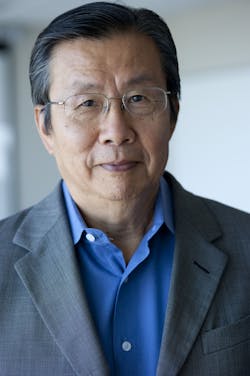
It now takes around six years to get a Ph.D. in optics or photonics. Why so long?
I spoke with three prominent professors with research programs in three corners of the U.S. All three agreed that the Ph.D. process is getting longer, taking five to seven years, and closer to six, as you said. They said that it now requires six months to a year longer than 15 years ago. There is some interest in shortening the time required. One university has even set timelines and milestones for exams, thesis reviews, and proposals to prompt students along. That university also threatens to cut off financial support if students exceed certain time limits.
“It is usually very clear when they are ready to get their Ph.D.,” said one professor. “They come into your office excited, showing you new interesting results . . . and it is all about things that you were not anticipating . . . for example, not what you were asking them to do. The norm is they usually “get it” at the end of the fourth or fifth year, rarely earlier. They take courses for about two years, and nothing much happens until after the exams are over. Then they concentrate on research and it seems a couple of years are needed to really get going.”
It took me five years from my baccalaureate degree to get my Ph.D. in 1969. We were done with required course work in the first year, and were pretty much doing research from then on. However, someone I knew back East took almost nine years because he could never pass Russian, the required second language he picked, and the professor was happy to have him helping incoming students!
The following is some of the feedback I received from the professors.
Because thesis projects are increasingly ambitious and build on many layers of knowledge and technology, ramp-up time for students can be longer. In addition, projects are often vertically integrated—developing a new material/technique/device, integrating it into a system, and making measurements characterizing that system—which makes it difficult to work around hold-ups at any of the stages. Therefore, it can take longer for experimentalists than for theorists.
In comparison to undergraduates in Europe, students in the U.S. spend less time during their undergraduate years on courses in their field of specialization, requiring more time on course work in graduate school. One of the professors said undergraduate education has become more diffuse—there are so many things students need to be or should be exposed to that depth often gets sacrificed. At the same time, the knowledge required to do cutting-edge research has increased. Therefore, graduate students usually need at least a couple of years to get up to speed.
Funding is increasingly becoming an issue. Projects are slowed down by delays in the acquisition of instrumentation or supplies. “We used to be able to get more basic and flexible funding that would permit individual projects in new fertile areas,” said one professor. “Funding now often comes with more defined and demanding deliverables and shorter timescales. This requires more highly trained and experienced students. So there can be some incentive to keep them on as post-docs if not still as Ph.D. students.”
Many students find their time in school pleasant and productive, and feel no compulsion to finish quickly. It is no coincidence that completion of dissertation often follows marriage or childbirth, which provide incentives. Sometimes it is in the student’s interest to stay on longer to get that one more publication that might lead to the job they want. The job market also plays a role: when it’s hot, they finish more quickly; when it’s not, they don’t.
One professor ended his comments on a positive note. “Our students are still interested in and excited about what they are doing,” he said. “They are, if anything, more entrepreneurial than 10 or 15 years ago. And the job market is picking up.”
I think he was implying we are likely to have a bumper crop of Ph.D.s this year!
About the Author
Milton Chang
MILTON CHANG of Incubic Management was president of Newport and New Focus. He is currently director of mBio Diagnostics and Aurrion; a trustee of Caltech; a member of the SEC Advisory Committee on Small and Emerging Companies; and serves on advisory boards and mentors entrepreneurs. Chang is a Fellow of IEEE, OSA, and LIA. Direct your business, management, and career questions to him at [email protected], and check out his book Toward Entrepreneurship at www.miltonchang.com.
